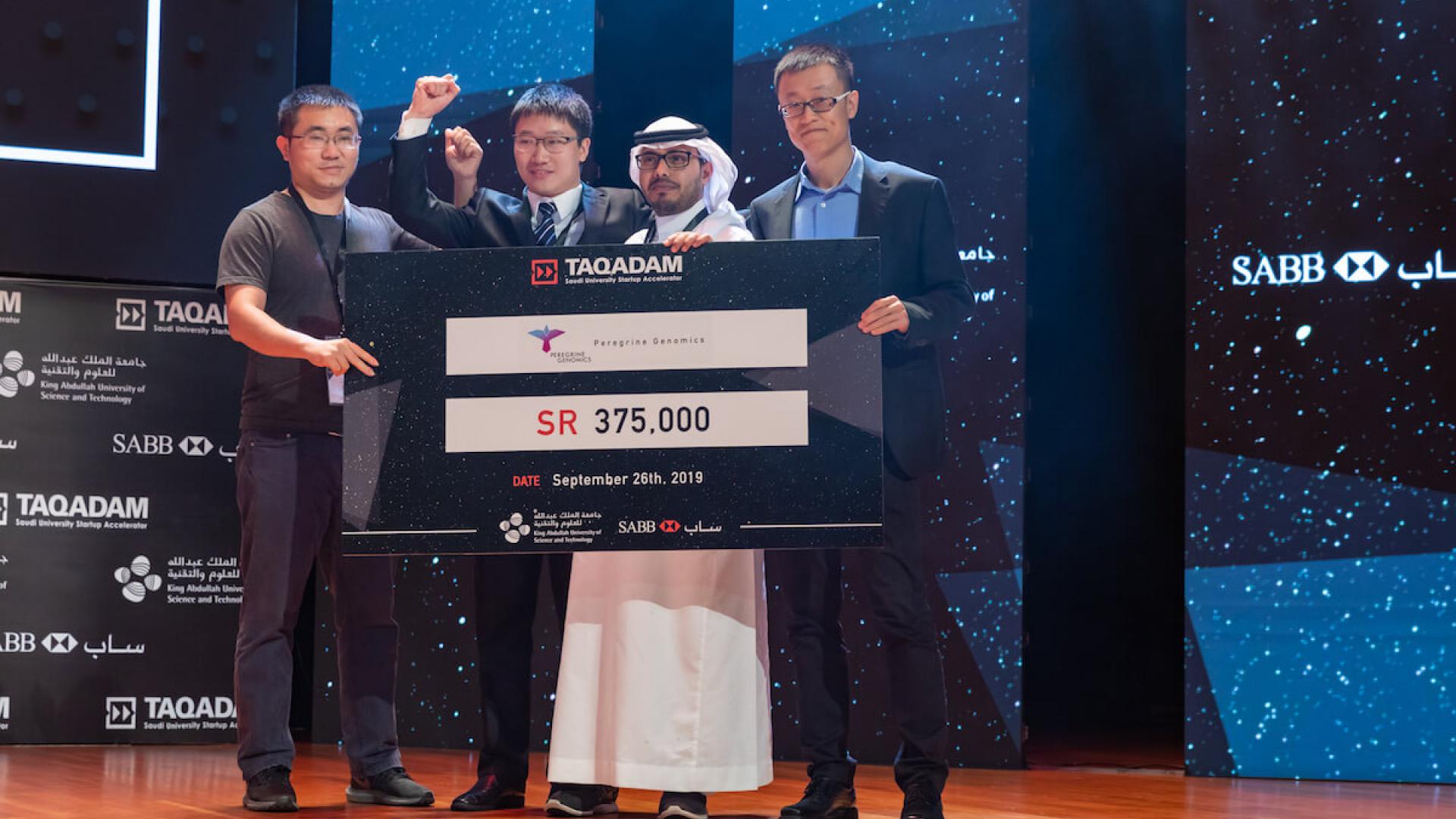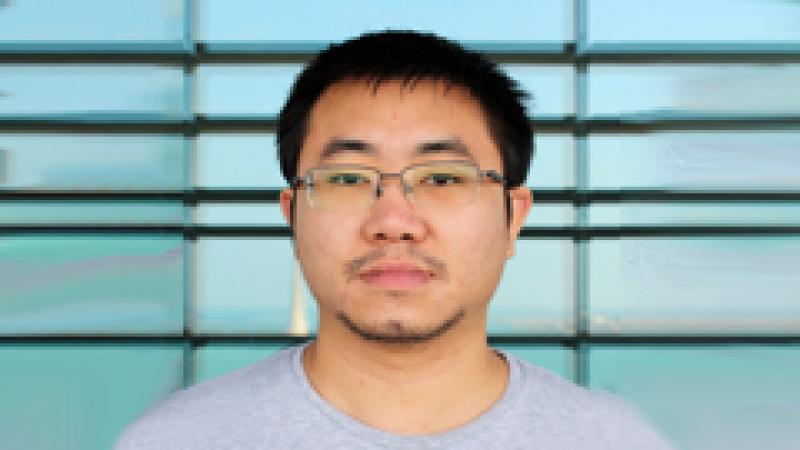By David Murphy
The future has already arrived when it comes to the most exciting and promising field of modern medicine—precision medicine. Precision medicine is a medical model that leverages biomedical big data and advanced analytics, such as artificial intelligence (AI), for personalized delivery of accurate and effective healthcare for individuals. In recent years, individualized biomedical data collection has been revolutionized by consumer devices such as smartphones and Fitbits. However, portable genomic data collection has lagged behind the advancement mentioned above and has remained in a bottleneck stasis.
Current genetic diagnosis by Next-Generation Sequencing (NGS) requires a significant investment of resources and offers little point-of-care (i.e., sequencing anywhere, anytime) portability. Additionally, NGS cannot detect many types of genetic variations in individuals—including large deletions, duplications, and balanced translocations—that apply to human diseases and health.
To address the many limitations of current portable genomic solutions, the eight-member KAUST-founded startup, Peregrine Genomics, has developed state-of-the-art proprietary sequencing technologies that can disrupt the market by combining AI and machine learning with targeted and third-generation sequencing.
The genesis of Peregrine Genomics
The genesis of Peregrine Genomics can be traced back to an academic collaboration between Professor Xin Gao’s Structural and Functional Bioinformatics (SFB) research group, Computer, Electrical and Mathematics Sciences and Engineering (CEMSE) Division, and Professor Mo Li’s Laboratory of Stem Cell and Regeneration, Biological, Environmental Science and Engineering (BESE) Division. The startup harnesses the regenerative medicine research drive of Li’s group, with the computational biology drive of Gao’s group, to provide real-time, accurate, accessible, and cost-effect portable biomedical genetic diagnosis of relevant genes and genomes worldwide.
Through Peregrine's technology—which has no bias in gene coverage and no compromise on DNA length or data throughput—the team believes they can accelerate the development of genomic medicine within Saudi Arabia, with the overall goal of improving human health both in the Kingdom and worldwide.
“The intrinsic errors of NGS make it difficult to obtain accurate answers for various genetic variations (e.g., small indels, SVs, balanced translocations, and haplotypes (important for bone marrow transplants)), which are all relevant to human health,” explained Xin Gao, associate professor of computer science, co-founder of Peregrine Genomics and acting associate director of the Computational Bioscience Research Center (CBRC) at KAUST.
“Our technology works with routine clinical samples (e.g., a simple blood draw) and provides ultra-long native DNA reads (up to 1,000X traditional methods) that can resolve any genetic variants. The technology is highly amenable to multiplexing and is customizable to any hereditary disease, or cancer gene panels.
“Our targeted sequencing workflow can run on the pocket-sized Nanopore MinION sequencer connected to a laptop. With the help of a portable hands-free automatic sample preparation device, the entire sequencing setup, which uses machine learning algorithms to generate the genetic variants’ information on the spot, can be brought in a briefcase to remote locations and run by any clinical technician without specialized training in NGS,” Gao explained.
Accelerating the development of genomic medicine in the Kingdom
The startup’s research focus, which is in line with the Kingdom’s Saudi Vision 2030 initiative, has already positively accelerated the development of genome medicine in the country while improving the healthcare of the local population. Accurate and accessible genomic diagnosis is a current service that is mostly unmet in the Kingdom; with, according to Gao, genetic diagnostics almost 100% outsourced to foreign contractors, such as CENTOGENE in Germany and BGI Genomics Services in China.
“For the first time, our technologies make accurate and real-time genetic diagnosis highly affordable and accessible. We have successfully conducted proof-of-concept clinical studies with leading hospitals in Saudi Arabia. We have shown that Peregrine's technology provides a fast and cost-effective solution to diagnose genetic diseases, including sickle cell disease and Batter syndrome. Furthermore, we solved an undiagnosed Saudi founder disease, for which current market solutions failed to find the mutation.”
The target base for Peregrine's technology includes healthcare providers, biomedical researchers, academic researchers, private and state-owned medical insurance providers, public health agencies, and governments.
“Our technology fulfills unmet needs and can be immediately applied to the premarital testing and newborn screening market. The annual market of premarital testing alone is $300 million in Saudi Arabia, $500 million in the GCC, and up to $3 billion in the MENA region. We have already established contacts and conducted proof-of-concept clinical studies with the King Faisal Specialist Hospital and Research Center, the King Abdullah International Medical Research Center, the National Guard Hospital, and the National Health Laboratory.
“More excitingly, our technology is well-positioned for the fast-growing precision medicine market to address issues including prediction of drug efficacy, cancer risk, and safety of gene therapy. Our vision is to conquer the technical hurdles in genetic diagnostics and provide enabling technologies to healthcare providers and researchers to improve human health.
“With our technologies, our customers can: one, purchase a sequencing solution; two, pay for the license of our IP and cloud-based analysis software to use in their own platforms, or three, pay for the service by sending samples to our company for sequencing and data analysis,” Gao noted.
Encouraging an entrepreneurial ecosystem
Gao joined KAUST in 2010 after obtaining his Ph.D. in computer science from the University of Waterloo and spending a year at Carnegie Mellon University as a Lane Fellow. He joined KAUST due to the University’s impressive research facilities, its promising future, and its generous personal and professional support. As someone willing to push the boundaries of science and technology, Gao has found KAUST to be an ideal location to develop Peregrine Genomics.
“KAUST has put great attention and effort into helping startups. Since its establishment, it has been constructing an ecosystem, environment, and infrastructure for startups to grow fast. It provides training, expertize, and support for such startups, which is crucial to their success,” he emphasized.
In the future, Peregrine Genomics will ramp-up its delivery of genetic diagnostic services to hospitals; increase sales of portable sequencing solutions, including hardware and software, license IP to other companies; and offer improved sequencing and data analysis services to its customers. The promising nature of the startup’s technology has been increasingly noted by its global peers and is garnering opportunities and rewards for the team.
“For the technology developed so far in this project, we have filed five international patent applications and published four peer-reviewed publications in top journals in the field. And last September, we became a winner of the 2019 TAQADAM Startup Accelerator Program,” Gao noted. “We were also selected as a semi-finalist at the GITEX 2019 in Dubai, and were specifically chosen to be among the top 30 selected startups to participate in the Shark Zone Competition (for conscious tech) at the Vested Summit in Egypt. Also, we have also been invited to attend this year’s Global AI Summit event in Riyadh,” he concluded.
Startup members
From Professor Xin Gao’s team: Xin Gao, Renmin Han, and Sheng Wang.
From Professor Mo Li’s team: Mo Li, Chongwei Bi, Xuan Zhou, Deng Luo, and Samhan Alsolami.
Advantages of Peregrine Genomics
Peregrine’s technology has advantages in cost, time, accessibility, and coverage. Compared with other solutions, they have the following advantages:
1) Sequencing cost is reduced by 60-70% from $500-$1,000 for per exome/patient
2) Sequencing time is reduced from 15-30 days to one-five days
3) Their technology is the first end-to-end pipeline from sequencing sample preparation all the way to the clinical report
4) Their platform is truly point-of-care, thanks to the portability of the MinION sequencer
5) Their platform works on any type of genetic variation, and thus can diagnose complex genetic diseases.


